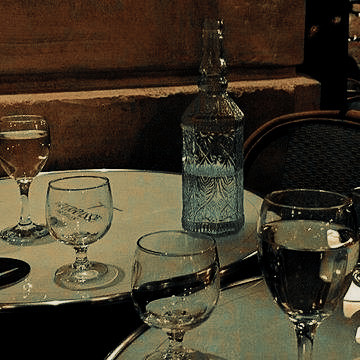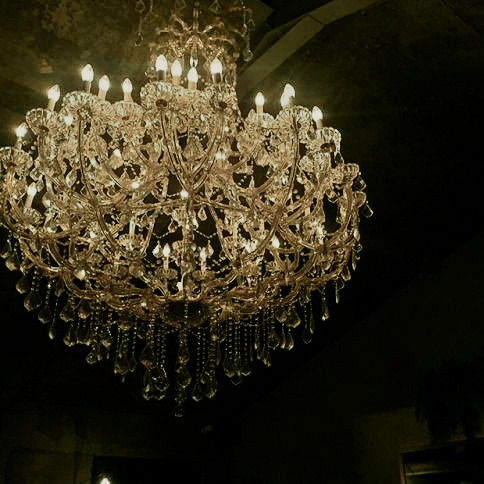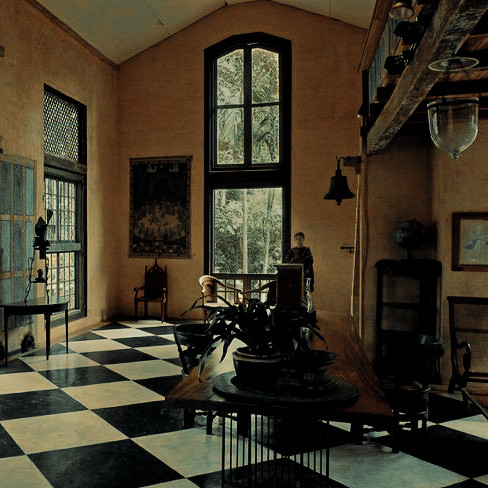I Just Came From Outside. It's Raining, The Garden Looks Peaceful Dressed In The Gentle Tones Of Green.
I just came from outside. It's raining, the garden looks peaceful dressed in the gentle tones of green.
I feel the raindrops on my face, my back, my hands while I'm picking strawberries.
Things are not perfect but this moment is great and so so so grounding.

More Posts from Ieatstories and Others
Honestly, it was worse than Game of Thrones. It really was. I can't believe this ending isn't just a some kind of a collective bad fever dream.
Let's check the prognostic made by the writers on the spn finale:
Like if you're part of the 30% that liked it
Reblog if you're part of the 70% that didn't like it
I'm curious to see the results.
Margaret Atwood: femininity is a performance art course you will never graduate from and man is your audience
me: holy shit
the small but growing Mitski on my shoulder: femininity might be a performance art we will never be free of, but because you are aware of this, sometimes you will seek to perform only for yourself and no one else, and by that, we are starting to break free
me, sobbing: thank you, Mitski of my consciousness
I reblog this because I want to be able to find it later. I'm so stressed about the thesis and the deadline is so close and my prof is not communicating with me and everything is wrong. BUT I also feel really inspired today and am actually looking forward to write, so that's good I think.
wholesome student life things that we should collectively start romancizing
waking up and being genuinely thrilled to go to class because today is THAT CLASS you love so much you’d like it to never end
coffee breaks with friends, chatting and joking about this particularly hard essay and the prof’s mannerism
coffee breaks on your own, as you absent-mindedly watch the people around you, while thinking about what you’re working on
finding this book you’ve been dying to read for so long, and borrowing it from the library
the feeling of excitement that goes through you whenever you remember The Book is in your backpack
understanding everything during demanding classes and being genuinely interested in the subject
buying a New Special Pen and taking colorful notes that look super pretty
not being able to shut up about your school projects (no your friends dont really care about the intricate details of what you’re working on, they don’t even have the same major as you, but they’re happy to hear you rant with such a burning passion)
actually doing the extra reading and having your curiosity so piqued by what you’re reading that you go on and on and suddenly its 1am and what happened
printing the project you’ve spent so much time and energy on and feeling the paper’s warmth
actually submitting that project without feeling awful about it because you know you did your best and aren’t responsible for what happens next
when you finally finish this Super Hard And Important Essay at like 3am, open the window and feel the cold night air on your burning cheeks and everything is dark and quiet and you can see the moon and you’re at peace with everything for a few minutes
when this professor you admire says you did a great job and/or that you’re talented!!!!
realizing two concepts that seemed so far away from each other and that you discovered in wildly different contexts are actually interlinked, then Realizing™ things and linking concepts/works/articles to each other at the speed of light & being super excited about it
being so deeply immersed in your work that you didn’t realize two hours have passed
finding the Perfect Spot at the library
that Pure Joy moment when you FINALLY understand that super obscure sentence/text
when you feel anxious because you’re not done with your homework & the deadline is super tight & your friend tells you they aren’t done yet either
same but with an even more intense relief feeling when you realize you both haven’t even started yet
when the professor starts a new reasoning and you can predict what the next idea/the final conclusion will be
when the professor mention your favorite novel/author/fictional character in class and you feel like your internal screech of joy could shatter glass
the Academic Salt™ that has you like 👀👀
when the professor tears apart an author or scholar you hate and you’re like YES I WANT BLOOD GIVE ME BLOOD
when you learn that Cool New Fact that makes you reconsider your whole life
leaving the library after a long productive day and feeling like nothing is real but experiencing everything more intensely
leaving the library at night after a long study session and everybody has left already and its just you and the long neon-lit corridors then stepping outside and smelling the crisp night wind
feel free to add your own!!!
I've written a long-ass rant about this episode and decided to not post it. I keep it short instead. Well... short-ish. WHAT EVEN WAS THIS SHIT SHOW THAT I JUST LAID MY EYES ON TO. It had so much potential, it could be so poetic and strong and meaningful. And I'm sure it is poetic and meaningful on the paper. But the reality is just... fucking disappointing. Where is my baby angel?! Where is Castiel, the president of our clown country?!

The very last episode better be the cry worthy, soul crushing and hopeful and beautiful shit we want. Let's all manifest the gayest show finale, k? The one that we actually deserve in here.
Harry's house feels like it's summer break but you are an adult but you got nothing exciting to do and days are just the same so you find escape in your past and then one day you go for a walk while the sun sets and it starts raining all of a sudden and you just stand there doing nothing and taking it all in. While memories play like a film reel in your brain and you are just about to give up.









south asian fitzwilliam darcy moodboard
"I cannot forget the follies and vices of others so soon as I ought, nor their offences against myself. My good opinion, once lost, is lost forever."
[ image ID in alt text ]
Academic writing advice inspired by Umberto Eco’s ‘How to Write a Thesis’:
Planning
Determine primary sources/bibliography.
Determine secondary sources/bibliography.
Find title.
Brainstorm a table of contents with as much detail as possible (with chapters, sections and even paragraphs and sub-paragraphs - see How to Write a Thesis’ own table of contents as an example at the end of this document) (if the first drafted table of contents is good enough, it will not be necessary to start the writing from the beginning).
Do a first draft of the introduction.
Note-taking and research
Use Google Scholar to make sure you do not miss important sources.
Keep the table of contents in mind when researching and take notes of which sources could go where.
While note-taking, differentiate which parts could be used as quotations from the ones that are simply important for the argument.
Eco underlines the importance of what he calls reading sheets, which can be understood as your notes on your readings. According to him, these should contain:
information about the author if he is not a well-known figure;
a brief (or long) summary;
they should mostly consist of quotations (accompanied by all the corresponding page numbers)
any commentaries you might want to add;
an indication of which part (or parts) of your table of contents the information mentioned belongs to.
Keep reading sheets on primary sources (which should be the longest) separate from those on secondary sources (which should only be 1-2 pages long).
In the end, re-read the notes and color-code all the different parts according to where they would fit in your table of contents.
Writing and editing
A good place to start would be by redrafting the introduction.
Define every key/technical term used/mentioned unless indisputably obvious.
General writing tips:
keep sentences short;
do not be afraid to repeat the subject twice (ex: Roberta went to the shop (…) Roberta bought carrots and tomatoes);
avoid excessive details;
avoid subordinate clauses (orações subordinadas);
avoid vague language;
avoid unnecessary adjectives;
avoid the passive voice.
While drafting, write everything that comes to mind. Leave the editing for the end.
Use your tutor as a Guinea pig. Make them read your first chapters (and, progressively, all the rest) well before delivery is due.
Ask for as much feedback as possible. Ask colleagues, friends and/or family to read your work. They will provide you with more diversified feedback, as well as allowing you to know if your writing is clear to anyone.
Stop playing ‘solitary genius’.
Don’t insist on starting with the first chapter. Start with what you know best and feel more comfortable writing about, then fill in the gaps.
Leave time for editing and try to take at least a one or two days long break in between writing and editing.
Do not forget to fill in the gaps. When you revisit your writing, go through it with all these writing tips in mind as well as a conscience of what your most common mistakes are.
Use Hemingway in the final editing phase.
Quotations and footnotes
Since there are two kinds of sources (primary and secondary), there are also two kinds of quotations: either we quote a text which we will interpret, or we quote a text which supports your interpretation.
Some quotation rules to know:
“Quote the object of your interpretive analysis with reasonable abundance.”
“Quote the critical literature only when its authority corroborates or confirms your statements. (…) when quoting or citing critical [aka secondary] literature, be sure that it says something new, or that it confirms authoritatively what you have said.”
“If you don’t want readers to presume that you share the opinion of the quoted author, you must include your own critical remarks before or after the passage.”
“Make sure that the author and the source of your quote are clearly identifiable.”
“When a quote does not exceed two or three lines, you can insert it into the body of the text enclosed in quotation marks. (…) When the quote is longer, it is better to set it off as a block quotation. In this case the quotation marks are not necessary, because it is clear that all set-off passages are quotes, and we must commit to a different system for our observations. (Any secondary developments [like the quote’s reference] should appear in a note.) (…) This method is quite convenient because it immediately reveals the quoted texts; it allows the reader to skip them if he is skimming, to linger if he is more interested in the quoted texts than in our commentary, and finally, to find them immediately when need be.”
Some footnote rules to know:
“Use notes to add additional supporting bibliographical references on a topic you discuss in the text. For example, ‘on this topic see also so-and-so.’”
“Use notes to introduce a supporting quote that would have interrupted the text. If you make a statement in the text and then continue directly to the next statement for fluidity, a superscript note reference after the first statement can refer the reader to a note in which a well-known authority backs up your assertion.”
“Use notes to expand on statements you have made in the text. Use notes to free your text from observations that, however important, are peripheral to your argument or do nothing more than repeat from a different point of view what you have essentially already said.”
“Use notes to correct statements in the text. You may be sure of your statements, but you should also be conscious that someone may disagree, or you may believe that, from a certain point of view, it would be possible to object to your statement. Inserting a partially restrictive note will then prove not only your academic honesty but also your critical spirit.”
“Use notes to provide a translation of a quote, or to provide the quote in the original language.”


Good advice. If I listened earlier, I wouldn’t be here. But that’s just the trouble with me.
i think humanity’s love affair with the sea is perhaps the sexiest thing about us
I feel stupid. I literally thought that the avatar was this picture of David Tennant.

Not a dream
Things that somehow still surprise people
1) I am not a guy
2) I am not American
3) that's Audrey Hepburn in my DP
4) ???
-
 bumpadeer liked this · 4 years ago
bumpadeer liked this · 4 years ago -
 cottagecore-and-backyard-gardens reblogged this · 4 years ago
cottagecore-and-backyard-gardens reblogged this · 4 years ago -
 complementaryxcolors liked this · 4 years ago
complementaryxcolors liked this · 4 years ago -
 nervousbagelfestivalllama-blog liked this · 4 years ago
nervousbagelfestivalllama-blog liked this · 4 years ago -
 alextheauthor77 liked this · 4 years ago
alextheauthor77 liked this · 4 years ago -
 lifehealthrelax liked this · 4 years ago
lifehealthrelax liked this · 4 years ago -
 slaughterofangels liked this · 4 years ago
slaughterofangels liked this · 4 years ago -
 lavenderwaterlilyfairy liked this · 4 years ago
lavenderwaterlilyfairy liked this · 4 years ago -
 dead-blog-1216 reblogged this · 4 years ago
dead-blog-1216 reblogged this · 4 years ago -
 nhitrantuan liked this · 4 years ago
nhitrantuan liked this · 4 years ago -
 salty-mush-soup liked this · 4 years ago
salty-mush-soup liked this · 4 years ago -
 dahlialia liked this · 4 years ago
dahlialia liked this · 4 years ago -
 waiter-melon liked this · 4 years ago
waiter-melon liked this · 4 years ago -
 a-esttombeeavecmoi liked this · 4 years ago
a-esttombeeavecmoi liked this · 4 years ago -
 wizardsal liked this · 4 years ago
wizardsal liked this · 4 years ago -
 plantgirlivy reblogged this · 4 years ago
plantgirlivy reblogged this · 4 years ago -
 trashbutidontmind liked this · 4 years ago
trashbutidontmind liked this · 4 years ago -
 earthlightwitch liked this · 4 years ago
earthlightwitch liked this · 4 years ago -
 citrus-sweater liked this · 4 years ago
citrus-sweater liked this · 4 years ago -
 frognumber657332 liked this · 4 years ago
frognumber657332 liked this · 4 years ago -
 itsoneloafofbreadareyoukiddingme liked this · 4 years ago
itsoneloafofbreadareyoukiddingme liked this · 4 years ago -
 hideur-pickle-jars liked this · 4 years ago
hideur-pickle-jars liked this · 4 years ago -
 skyla-ross-love liked this · 4 years ago
skyla-ross-love liked this · 4 years ago -
 afineglassofchampagne liked this · 4 years ago
afineglassofchampagne liked this · 4 years ago -
 stardustrabbitsgallery liked this · 4 years ago
stardustrabbitsgallery liked this · 4 years ago -
 notanicekid liked this · 4 years ago
notanicekid liked this · 4 years ago -
 ieatstories reblogged this · 4 years ago
ieatstories reblogged this · 4 years ago

24 | czech | reader | writer in making | student | dark academia | cottagecore | royal core | piratecore | leo | ravenclaw
120 posts